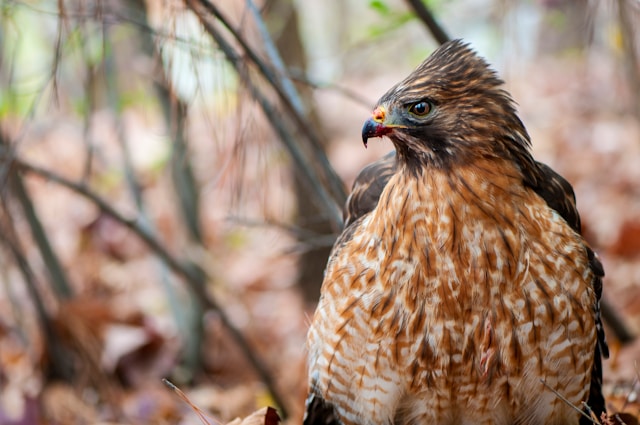Harris hawk Bella is employed twice weekly to deter gulls from historic sites and residential areas
In an innovative effort to control the increasing gull population plaguing Worcester’s city centre, a Harris hawk named Bella has been enlisted to patrol the area twice a week. Operated by Gino Belmonte from GCB Falconry and Pest Solutions, Bella’s mission is to establish territorial dominance, prompting gulls to relocate from historic buildings, some of which are Grade II-listed.
Worcester City Council initiated this measure in response to escalating complaints about gulls disrupting daily life. Councillors have cited early morning disturbances, property damage from bird mess, and a general surge in gull numbers as significant issues affecting local residents and businesses. Areas like The Tything, High Street, Copenhagen Street, Fish Street, Diglis, and Lower Wick have been particularly affected.
Embed from Getty ImagesGino Belmonte explained that Bella’s presence creates a “red zone” for gulls and pigeons, making these areas less attractive for nesting or loitering. During her two-hour patrols, Bella does not harm the gulls but effectively discourages them from congregating by establishing a presence that signals potential danger to the birds.
“While gulls initially attempted to intimidate Bella, her consistent presence and training ensure she remains steadfast,” Mr. Belmonte stated. This persistence encourages the gulls to seek safer territories away from Bella’s patrol routes.
Worcester City Council has also advised property owners to refrain from feeding gulls and to properly dispose of food waste, practices that can inadvertently attract and sustain gull populations. The council has identified the majority of Worcester’s gulls as lesser black-backed gulls and herring gulls, known for their heightened aggression and noise levels during the summer months when they protect and feed their chicks.
Previous strategies employed by the council include replacing real eggs with dummy eggs, utilizing cherry-pickers to “gull-proof” roofs and chimneys of local businesses, and removing nests, eggs, and chicks. These efforts are part of ongoing initiatives to mitigate the impact of gulls on urban environments and historical landmarks.
Analysis:
Social: Socially, the use of Bella the Hawk addresses community concerns about the disruptive behaviours of gulls in urban areas. By reducing noise disturbances and property damage caused by bird droppings, the initiative improves the quality of life for residents and enhances the appeal of Worcester’s historic sites for visitors and businesses alike.
Economic: Economically, controlling the gull population helps mitigate potential financial losses associated with property damage and the impact on tourism. By preserving the cleanliness and aesthetic appeal of public spaces and historical buildings, the city can maintain and potentially increase local property values and tourism revenues.
Environmental: From an environmental perspective, managing gull populations through non-lethal means aligns with conservation efforts. By avoiding mass culling or harmful chemicals, Worcester City Council promotes biodiversity and maintains ecological balance within urban ecosystems.
Political: Politically, the deployment of Bella reflects proactive governance in responding to public complaints and environmental challenges. By investing in sustainable pest management solutions, the council demonstrates its commitment to addressing community concerns while promoting effective and humane urban wildlife management practices
